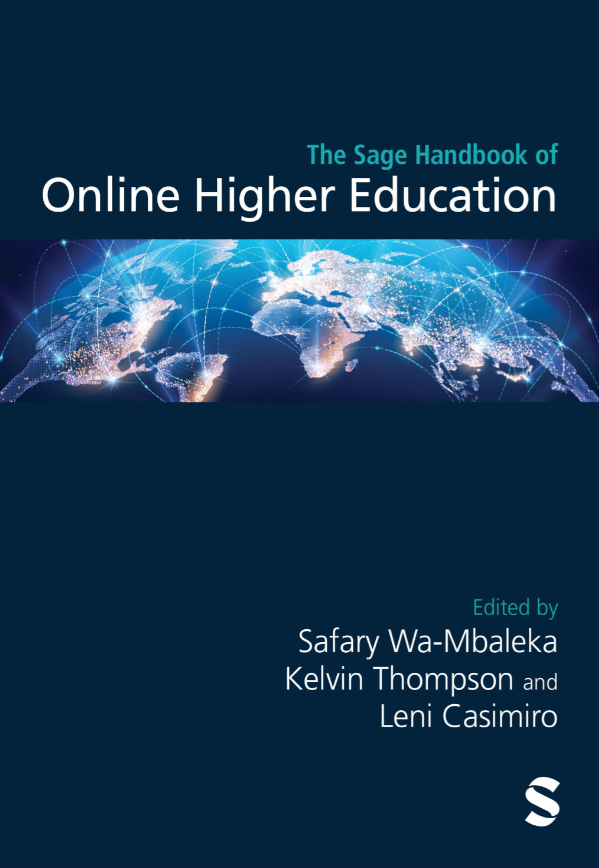AIIAS alumni, faculty, and former faculty participated in the publication of the SAGE Handbook of Online Higher Education, an essential resource for educators, researchers, policymakers, and practitioners who seek to understand and shape the future of higher education in the digital age.
The newly published book featured recognized online learning experts worldwide as chapter authors who bring together a broad range of insights, presenting practical strategies for delivering online higher education.
Developing strong reading skills is essential for success in higher education, especially in an online learning environment where students must navigate vast amounts of digital content independently. Effective reading strategies help learners engage with complex texts, retain information, and think critically about the material presented. Whether studying research articles, textbooks, or case studies, structured reading exercises can enhance comprehension and improve overall academic performance. Educators often use guided worksheets and interactive tools to support students in breaking down challenging concepts and fostering deeper understanding.
That why younger learners or those looking to strengthen foundational reading skills, resources like Reading Duck offer engaging worksheets and activities that make reading both fun and effective. These worksheets help build vocabulary, improve comprehension, and develop analytical thinking, making them valuable for students at various levels. By incorporating structured reading exercises, educators and parents can better support learners in developing the skills necessary for academic success, whether in traditional classrooms or online higher education settings.
Online learning has transformed higher education, providing unprecedented accessibility to learners worldwide. With the rise of digital platforms, students now have the flexibility to engage in courses from anywhere, anytime, and at their own pace. However, this shift also brings unique challenges, such as maintaining engagement and ensuring effective knowledge retention.
Advancements in AI have played a crucial role in addressing these challenges, offering personalized learning experiences tailored to individual student needs. AI-powered tools can analyze learner behavior, provide real-time feedback, and adapt content to optimize the learning journey.
Flashcards, in particular, have long been a proven method for reinforcing memory, and with AI integration, platforms like Memrizz take this a step further by leveraging smart algorithms to personalize flashcard sets, ensuring learners engage in targeted practice that maximizes knowledge retention efficiently.
AIIAS continues to develop leaders who involve themselves in the contribution of scholarly work by prestigious international publishers. Continuing to pave the way as editors for the publication of the book are the current Chairperson of the Education Department, Dr. Leni Casimiro, along with lead editor Dr. Safary Wa-Mbaleka, former AIIAS faculty member now serving at Bethel University, and Dr. Kelvin Thompson from the University of Louisville.
“This book should be on the reading list for all educators who care about providing a quality educational experience for their students. Written by global experts in online learning, it provides a comprehensive foundation to guide leaders, faculty, and staff through the various elements that are critical to building effective online programs. It is through resources like this that we are able to provide a path forward to successful learning during normal times and continuity of learning during a crisis or natural disaster,” says Jennifer Mathes, PhD, Chief Executive Officer, Online Learning Consortium, USA.
In an era where digital learning has become a necessity, institutions must equip their faculty and students with the tools needed to navigate this space effectively. Such resources not only enhance teaching methodologies but also contribute to creating inclusive and adaptable learning environments that stand the test of time.
As the demand for high-quality education continues to grow, students preparing for competitive exams like the SAT must also have access to the best learning tools. Platforms like https://www.askerra.com/ provide comprehensive resources tailored to students looking to excel in their academic pursuits. With structured SAT courses designed to enhance problem-solving skills and test-taking strategies, Askerra ensures that students receive the guidance they need to achieve their target scores.
Just as AIIAS is shaping the future of online education for educators, platforms like Askerra are empowering students by providing them with interactive learning experiences that cater to their individual needs. By integrating technology-driven educational solutions, students can bridge learning gaps, strengthen core subject knowledge, and approach exams with greater confidence and preparedness.
The book will be made available to the public by December 2023. Pre-order a copy or learn more about the SAGE Handbook of Online Higher Education here: https://us.sagepub.com/en-us/nam/the-sage-handbook-of-online-higher-education/book281802.
— Sharnie Love Zamora, AIIAS Assistant for Institutional Writing



